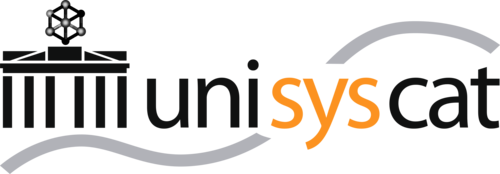Research Focus
All living systems – including human society – depend on effective, sustainable, and well-orchestrated processes for the conversion of matter and energy. As a consequence, catalytic reactions are at the core of Life and relevant for diverse fields of interest ranging from fundamental biological questions to industrial transformations and human health.
As part of the Cluster of Excellence UniSysCat, our research aims to understand complex catalytic systems and superordinate reaction networks by using an integrated approach of advanced spectroscopic and theoretical methods. In particular, we are interested in metalloenzymes – huge metal-containing proteins that catalyze, e.g., the conversion of small molecules like H2 and CO2.
On the one hand, these complex biological machines are key to the cellular energy metabolism and – possibly – the emergence of Life on earth. On the other hand, their unrivalled efficiency and specificity make them valuable targets for biotechnological applications and bio-inspired catalyst design – given that their mechanistic features are properly understood. Thus, we utilize ultrafast, multidimensional, and computational spectroscopy to explore the structure, function, and dynamics of these fascinating biocatalysts in detail.
Keywords
- Bioinorganic Catalysis
- Experimental and Theoretical Biopysics
- Hydrogenases
- Marius Horch
- Metalloenzymes
- Multidimensional Spectroscopy
- Ultrafast Dynamics in Catalysis
- Ultrafast Spectroscopy
- Unifying Systems in Catalysis
- UniSysCat
- Vibrational Spectroscopy


